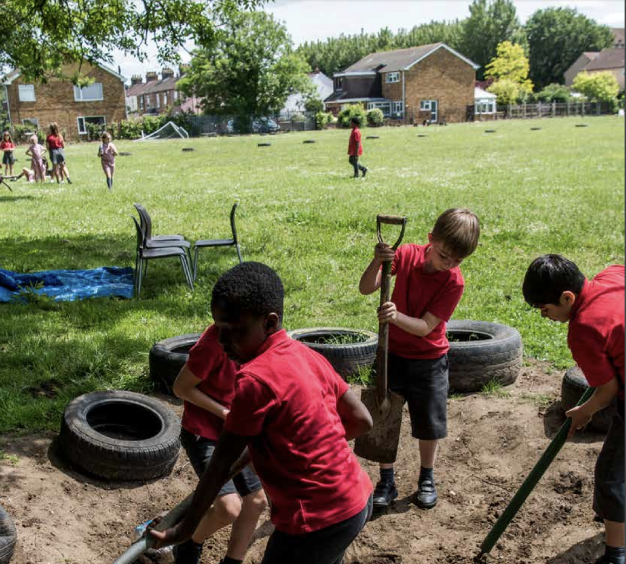
UK primary schools ‘must demonstrate how they support play opportunities’ – report
Opportunities for ‘self organised play’ for children in UK schools have significantly ‘diminished’ and schools must respond, says a report by an influential play advisory body.
Outdoor Play and Learning (OPAL), which works across the EU, has published a new literature review that supports the case for better opportunities for play in UK schools.
OPAL is a mentor supported school improvement programme that addresses all the areas that schools must plan for if they want to strategically and sustainably improve the quality of their play opportunities.
It also advises the EU-funded ‘Play Friendly Schools’ quality mark, which supports play policies in schools in Poland, Hungary, Czech Republic, Slovakia and Austria.
But its latest publication, The Case for Play in Schools, says that most of the contemporary literature around play has ‘largely upheld the principle that if children are unable to realise the intrinsic value of playtimes, then instrumental and institutional value will be compromised’.
Michael Follett, director of OPAL, says: “The review of literature on playtimes in primary schools has highlighted both the value of good playtimes and the concerns that schools and children have. The research shows that opportunities for self-organised play have diminished both at home and in schools.
‘Schools must demonstrate how they support play opportunities’
“Instrumental value of interventions to improve playtimes can be found in children’s greater engagement in a range of movement and moderate-to-vigorous-physical-activity (MVPA); in increased prosocial behaviour and reduction in conflicts and the development of social and emotional skills; better problem-solving skills, self-regulation and self-confidence; reduced stress, boredom and injury,” he adds.
The report recommends that all primary schools develop a strategic approach to improvements in the quality and diversity of their play opportunities, and also focus on using all available space all year to support the many diverse forms of play available.
Training and mentoring of supervising staff, adds the report, should be ’embedded in a whole school culture that supports play’, while schools should also be required to demonstrate how they support self-sufficient organised play opportunities for all of their children.
The review was commissioned by OPAL as part of its Sport England funded project to increase its capacity and services for supporting play in schools. The three broad aims of the project are to enable more schools to improve playtimes, make the support and resources better, and to support schools for longer.




